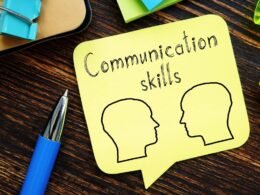|
Getting your Trinity Audio player ready...
|
Negotiation skills are essential for business success, whether you’re closing a sales deal, navigating vendor contracts, or discussing salaries. Effective negotiation isn’t about winning at the expense of others—it’s about finding solutions that benefit all parties. This article explores practical negotiation techniques, focusing on win-win strategies that foster collaboration and long-term relationships.
1. Preparing for a Negotiation: Research and Setting Objectives
Thorough preparation lays the foundation for any successful business negotiation. Entering a negotiation without preparation reduces your leverage and increases the risk of suboptimal outcomes.
Steps to Prepare for a Business Negotiation:
- Research your counterpart: Learn about the other party’s business, industry, and negotiation style. Look for shared goals or constraints that could influence their decision-making.
- Set clear objectives: Identify what you need from the negotiation (e.g., price points, timelines, deliverables). Prioritize these objectives into must-haves and nice-to-haves.
- Know your BATNA (Best Alternative to a Negotiated Agreement): Your BATNA represents the best outcome if negotiations fail. Understanding this gives you confidence and limits unnecessary concessions.
- Anticipate objections: Prepare responses to potential challenges the other party might raise.
Example:
If negotiating a vendor contract, research market prices and the vendor’s reputation. Prepare an alternative vendor option (your BATNA) to strengthen your position.
2. Building Rapport: The Importance of Relationships in Negotiations
Effective negotiators know that building rapport is essential to creating trust and cooperation. Business negotiations are not just about closing deals; they are also about building long-term relationships that benefit both parties.
Strategies for Building Rapport:
- Find common ground: Engage in small talk to establish a personal connection. Ask about mutual interests, recent achievements, or industry trends.
- Practice active listening: Show genuine interest in what the other party is saying by paraphrasing their points or asking follow-up questions.
- Be empathetic: Acknowledge the other party’s concerns and demonstrate that you understand their perspective.
- Mirror body language and tone: Subtle mirroring helps build subconscious rapport, making the other party feel more comfortable and connected.
Pro Tip:
Building relationships early can pay off. In a business negotiation with repeat interactions, rapport lays the groundwork for future deals and smoother conflict resolution.
3. Persuasion Techniques: Leveraging Influence and Presenting Offers
Persuasion is at the heart of successful business negotiation. Skilled negotiators know how to frame their offers and use leverage to guide discussions toward favorable outcomes.
Key Persuasion Techniques for Negotiations:
- Anchor your offers: Start with a strong, favorable offer to set the tone of the negotiation. The initial offer acts as an anchor, influencing subsequent discussions.
- Use data and facts: Back your proposals with data, industry benchmarks, or success stories to boost credibility.
- Highlight shared interests: Present your offer in a way that aligns with the other party’s goals. Emphasize mutual benefits to increase acceptance.
- Leverage scarcity: Point out limited-time opportunities or competitive alternatives to create urgency and pressure.
- Use silence strategically: After presenting an offer, pause and wait for the other party’s response. Silence can create discomfort, encouraging them to concede or respond favorably.
Example:
In a sales negotiation, anchor your pricing high but provide justifications, such as market trends or superior product value. Offer discounts strategically to create a sense of gain for the buyer.
4. Finding Win-Win Solutions: Collaboration vs. Competition
Win-win strategies focus on collaborative problem-solving rather than competitive bargaining. In collaborative negotiations, both parties work together to find solutions that satisfy their needs and foster mutual trust.
Tips for Finding Win-Win Solutions:
- Focus on interests, not positions: Understand the underlying interests behind each party’s demands. For example, a supplier might demand faster payments, but their true interest could be improving cash flow. Offering upfront payment installments could satisfy both parties.
- Brainstorm multiple options: Rather than settling for the first solution, explore alternative outcomes that address both parties’ needs.
- Use “If-Then” scenarios: Offer conditional solutions to encourage flexibility. For example, “If you can extend the delivery timeline, we can increase the order size.”
- Be transparent about constraints: Openly communicating constraints builds trust and allows both parties to find realistic solutions.
Example:
In a vendor negotiation, rather than haggling over price, consider offering longer contracts or larger order volumes to secure discounts, creating a win-win outcome.
5. Following Up After Negotiations: Solidifying Agreements
The negotiation doesn’t end when both parties shake hands. Effective follow-up ensures that agreements are implemented smoothly and the relationship remains positive.
Steps for Effective Follow-Up:
- Confirm agreements in writing: Send a summary of the key terms and next steps via email or formal documentation. This ensures both parties have a clear understanding of the agreement.
- Express appreciation: Thank the other party for their time and effort. Gratitude reinforces positive relationships and sets the tone for future negotiations.
- Monitor progress: Track milestones or deadlines to ensure the agreement is being implemented as discussed.
- Address issues early: If challenges arise, communicate promptly and offer collaborative solutions.
- Keep the relationship alive: Even after the deal is done, maintain occasional contact to nurture the relationship for future opportunities.
Read more: Learn about Effective Email Communication to enhance your follow-up techniques.
Explore: Strengthen your crisis management skills with our guide on Crisis Communication Skills.
Conclusion: Mastering Negotiation Skills for Business Success
Negotiation skills are an indispensable part of business leadership, driving successful deals, stronger relationships, and better outcomes. By focusing on preparation, rapport-building, persuasion techniques, and win-win solutions, executives can approach negotiations with confidence and competence. Effective follow-up further ensures that agreements are honored and relationships thrive, setting the stage for long-term success.
Key Takeaways:
- Prepare thoroughly by researching your counterpart and setting clear objectives.
- Build rapport to establish trust and cooperation.
- Use persuasion techniques strategically to guide discussions in your favor.
- Find collaborative solutions to achieve win-win outcomes.
- Follow up to ensure smooth implementation and nurture future relationships.
With these strategies in place, you’ll be well-equipped to navigate business negotiations effectively, fostering mutual success and long-term partnerships.
Frequently Asked Questions (FAQ): Negotiation Skills
What are negotiation skills, and why are they important?
Negotiation skills are the ability to discuss and reach mutually beneficial agreements between two or more parties. They are crucial in business as they allow individuals to resolve conflicts, secure favorable contracts, close deals, and build long-term partnerships.
What is a win-win strategy in negotiations?
A win-win strategy focuses on creating solutions that benefit all parties involved, rather than one side “winning” at the expense of the other. Collaborative problem-solving and open communication are key to finding these balanced outcomes.
What is BATNA, and why is it important in negotiations?
BATNA stands for Best Alternative to a Negotiated Agreement. It represents the best outcome you can achieve if negotiations fail. Knowing your BATNA provides leverage and helps you avoid making unfavorable concessions.
How do I build rapport with a counterpart during business negotiations?
Building rapport involves establishing trust and a positive relationship with the other party. Techniques include engaging in small talk, active listening, and finding shared interests. Rapport increases cooperation and makes it easier to reach a mutually beneficial agreement.
What are effective persuasion techniques in business negotiations?
Key techniques include anchoring your initial offer, using data to support your position, highlighting shared benefits, leveraging scarcity, and using silence strategically to encourage concessions.
How can I handle objections during negotiations?
Prepare responses to anticipated objections in advance. During the negotiation, acknowledge the other party’s concerns, reframe them positively, and offer alternative solutions to address their objections.
What’s the role of follow-up after negotiations?
Follow-up ensures that agreements are implemented smoothly and relationships remain positive. It involves confirming terms in writing, expressing gratitude, monitoring progress, and staying in touch to maintain long-term relationships.
How can I improve my negotiation skills over time?
Improvement comes with practice, feedback, and self-reflection. Record your negotiation sessions, seek feedback from mentors or colleagues, and continuously study effective negotiation strategies and techniques.
What are some common negotiation mistakes to avoid?
Common pitfalls include:
– Failing to prepare adequately
– Focusing only on your position rather than interests
– Ignoring the importance of rapport
– Accepting the first offer without exploring alternatives
– Forgetting to follow up and confirm agreements in writing
Extra References
Harvard Law School’s Program on Negotiation: This platform offers in-depth insights into negotiation tactics, with case studies on win-win strategies and advice on managing counterpart satisfaction effectively. Read more









One thing I’ve noticed is that confidence plays a huge role in negotiations. If you sound unsure, the other party picks up on it quickly. Do you have any tips for boosting confidence during high-stakes deals?
Great observation! Confidence can make or break a negotiation. Preparation is key—knowing your numbers, anticipating objections, and practicing with role-play scenarios can help. Also, using positive body language and controlled pacing in speech can reinforce confidence. Thanks for bringing this up!
Loved this article! It would be great to see more real-life examples of win-win negotiations. Maybe a case study on successful business deals?
That’s a fantastic idea! Case studies can really bring these strategies to life. We’ll definitely consider covering real-world examples of successful win-win negotiations in a future post. Thanks for the suggestion!
I’ve been in sales for years, and I can confirm that building trust is everything in negotiations. No amount of tactics can replace genuine rapport!
Completely agree! Trust is the foundation of any successful negotiation. When both parties feel respected and valued, deals become smoother and more beneficial for everyone involved. Thanks for sharing your experience!
I liked the emphasis on problem-solving in negotiations. Sometimes, creativity is what leads to the best solutions. Have you come across any unique negotiation tactics that work well in tough situations?
Great observation, Andrew! Creative solutions often lead to win-win outcomes. One interesting tactic is ‘expanding the pie’—where both sides look for additional benefits outside the main issue to create more value. Another is using silence strategically to encourage the other party to share more information. Thanks for your input!
Great tips! I find that having a clear understanding of the other party’s needs makes negotiations much smoother. Do you recommend any specific techniques for gathering insights before entering a negotiation?
That’s a great point! Understanding the other party’s needs is crucial. Researching their past deals, industry trends, and even asking open-ended questions before negotiations can provide valuable insights. Also, building rapport early on can help uncover key motivations. Thanks for your question!
Really insightful article! I think many people approach negotiations with a ‘win-lose’ mindset, which can hurt long-term business relationships. Finding common ground is definitely the smarter approach!
Absolutely! A win-lose mindset might work in the short term, but it often damages relationships and limits future opportunities. A collaborative approach helps create value for both parties and builds long-term partnerships. Thanks for sharing your thoughts!
I’ve always struggled with negotiation, but this article gave me some clear strategies to work on. The ‘active listening’ tip really stood out to me! It’s something I need to practice more!
Glad you found the strategies helpful! Active listening is often underrated, but it can make a huge difference in negotiations by building trust and uncovering key interests. Keep practicing, and you’ll see improvements over time!
This was a great read! I love how you emphasized collaboration instead of competition in negotiations. Do you think emotional intelligence plays a big role in securing win-win deals?
Great question! Yes, emotional intelligence is a key factor in successful negotiations. Being able to read the other party’s emotions, respond empathetically, and regulate your own emotions can lead to more constructive discussions and better outcomes. Thanks for your insight!
Great tips on negotiation! Loved the focus on win-win strategies—super useful for business deals and daily conversations.